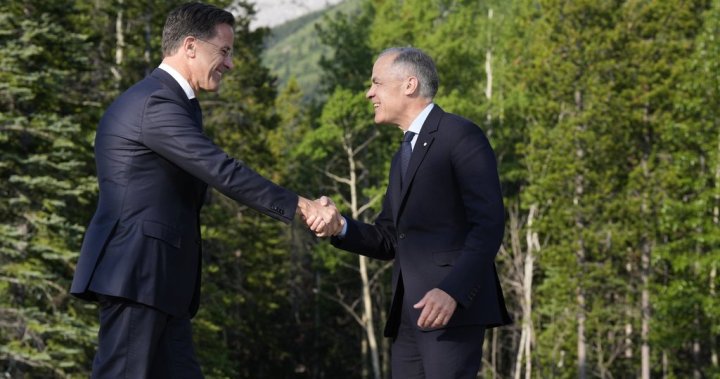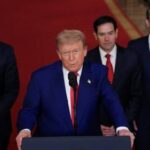In a significant diplomatic development, former Bank of Canada governor Mark Carney has stepped into high-level discussions with European defence officials, signaling potential shifts in Canada’s strategic positioning on the global stage. These talks come at a critical juncture as Western alliances recalibrate their security frameworks amid evolving geopolitical tensions.
Carney, whose influence has transcended traditional financial boundaries, met with senior NATO and European Union representatives in Brussels last week to discuss Canada’s potential expanded role in transatlantic security arrangements. Sources familiar with the discussions indicate that strengthening Canada’s defence commitments and industrial partnerships were central themes in these closed-door sessions.
“The nature of global security threats demands more integrated approaches between economic and defence policies,” noted a senior European diplomat present at the meetings who requested anonymity due to the sensitive nature of the talks. “Carney brings a unique perspective that bridges financial expertise with strategic foresight—something increasingly valuable in today’s complex security environment.”
The discussions explored several potential avenues for enhanced cooperation, including increased Canadian participation in European defence initiatives, technology sharing arrangements, and joint military procurement programs. With NATO members facing pressure to meet the alliance’s 2% GDP defence spending target, Carney’s economic background provides valuable insight into how Canada might restructure its defence expenditures while maintaining fiscal discipline.
Defence analysts suggest these talks may reflect a broader recognition within Canadian political circles that the country must diversify its security relationships beyond its traditional reliance on the United States. “Canada is increasingly aware that its security interests require more robust European partnerships,” explained Dr. Marie Leblanc, defence policy specialist at the University of Toronto. “What’s notable about Carney’s involvement is how it integrates economic and security considerations in a way conventional diplomatic channels sometimes struggle to achieve.”
The timing of these discussions is particularly significant given recent statements from NATO Secretary General Jens Stoltenberg emphasizing the need for alliance members to boost defence capabilities in response to growing threats. Canada currently spends approximately 1.33% of its GDP on defence, well below NATO’s 2% guideline.
Industry observers also note that enhanced defence cooperation could open substantial opportunities for Canadian manufacturers and technology firms. “The European defence market represents a significant growth opportunity for Canadian companies with dual-use technologies,” said Richard Thompson, president of the Canadian Defence Industry Association. “Any framework that facilitates greater market access would be welcomed by the sector.”
While neither NATO headquarters nor Carney’s office has released official statements regarding the substance of these meetings, European officials have characterized them as “constructive” and “forward-looking.” The discussions reportedly examined scenarios for Canada’s participation in specific European defence projects currently under development through the EU’s Permanent Structured Cooperation (PESCO) framework.
Parliamentary insiders suggest these exploratory talks may precede more formal announcements regarding Canada’s defence policy adjustments expected later this year. Defence Minister Bill Blair recently hinted at “substantial evolutions” in Canada’s approach to collective security arrangements during a parliamentary committee hearing last month.
As these discussions unfold, fundamental questions emerge about Canada’s long-term strategic orientation: Will strengthened European defence ties complement or potentially complicate the traditional Canada-U.S. security relationship? How might Canadian taxpayers respond to potential increases in defence spending? And perhaps most critically, how will Canada balance its growing Arctic security concerns with broader transatlantic commitments?
The involvement of a figure like Carney—whose expertise spans central banking, climate finance, and now apparently defence strategy—suggests Canada may be pursuing a more integrated approach to security that recognizes the interconnections between economic resilience and military capabilities. As these talks progress, Canadians may soon witness a significant recalibration of their country’s role in global security architecture.











